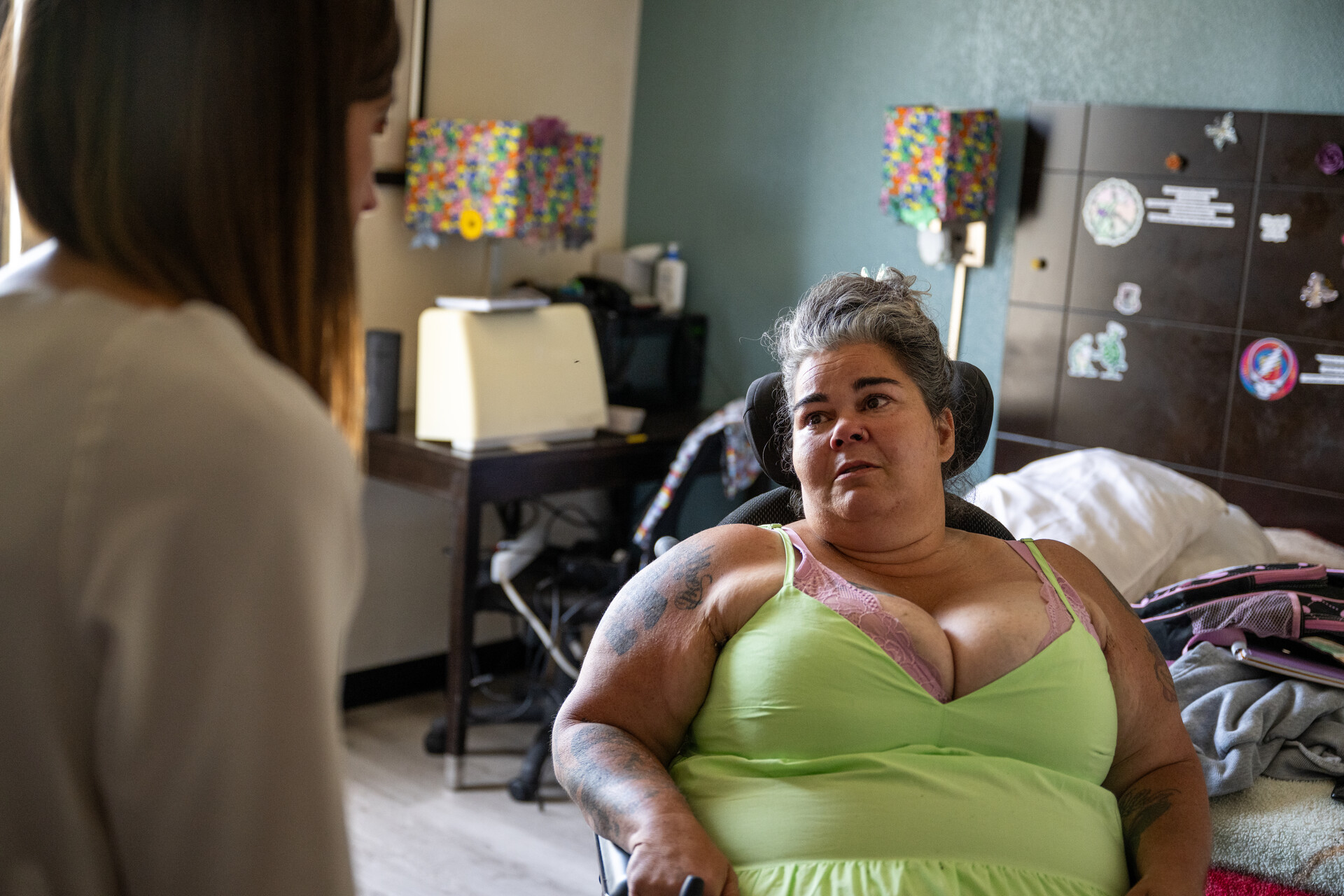Gov. Newsom Considers Legislation to Protect Health Care from Rising Venture Capital Influence
“'Our health care system is crumbling,' said Dr. Renee Hsia, a UCSF professor of emergency medicine. 'As we have more mergers and acquisitions, we have more involvement of private capital, venture capital, and private equity. There is very good evidence showing how this is not serving our population because there's a redundancy of care.
There's too many services in areas where you don't need it, and not enough in other areas. That misallocation of care is deteriorating our ability to provide care for anyone.'"
— Covered in KQED, Sep 18, 2024.

Study Finds Big Disparities in Stroke Services Across the U.S.
“'Some hospitals do not have the necessary resources to treat patients experiencing certain types of strokes,' said lead investigator Renee Y. Hsia, MD, a UCSF professor of emergency medicine and vice chair for Health Services Research in the Department of Emergency Medicine.
'Our findings can help inform the adoption of broad-based social and policy interventions at the local, state and federal levels to promote equal opportunity and access to important community resources.'”
— Covered in UCSF, Jul 26, 2024.
Disadvantaged Communities Less Likely to Have Advanced Stroke Care
“Given increasing evidence showing that stroke-certified hospitals are associated with improved care, incentivizing and providing support for hospitals in disadvantaged communities to obtain stroke center certification may serve as an important strategy for reducing stroke disparities,' wrote lead author Renee Y. Hsia, MD, MSc, of the department of emergency medicine and the Philip R. Lee Institute for Health Policy Studies at the University of California, San Francisco, and colleagues."
— Covered in Neurology Today, Jul 25, 2024.

How a Repurposed Oakland Hotel Is Saving Lives and Easing Hospital ER Overcrowding
“Soon after residents arrive at OakDays, they receive a medical workup to determine what kind of care they need. Tenants can get help with everything from going to the toilet to daily insulin injections. Nurses make rounds to check vitals and socialize with the 60 residents.
'We’ve successfully housed many of those folks who had cycled previously, like out of the hospital, to the street, to a nursing home, to jail, back to a hospital, back to the street, back to a nursing home,' said Catherine Hayes, a nurse practitioner and cofounder of Cardea Health, one of the nonprofits that run OakDays.”
— Covered in KQED, Jun 17, 2024.
Officials, patients press to save hospital trauma center in Bay Area's largest county
“'Trauma centers located in areas with higher concentrations of low-income residents on Medicaid - which pay hospitals at lower rates - tend to lose money, while centers in affluent areas where a higher proportion of residents are commercially insured tend to make more money,' according to Dr. Renee Hsia, a professor of emergency medicine at UCSF.
'Hospital systems tend to divest themselves of centers that don't make money. These aren't just one-off closures. Hospitals tend to act as economic entities because that's the system we as a society have created for them.'”
— Covered in SF Chronicle, Apr 15, 2024.
How do we treat L.A.'s overwhelmed emergency medicine system?
“A closure of an emergency department in an area doesn't mean that everyone in the area stops having heart attacks or strokes, or cutting their fingers off.
It means that they will be transported to the next emergency department, which may be more crowded because now, it sees patients from two areas instead of one," said Renee Hsia, vice chair for health services research at the UCSF emergency services department.
— Covered in Afro LA News, March 13, 2024.
Editorials
Why America's $4.5 Trillion Healthcare System Can't Afford To Stay The Same
"We cannot afford to continue heading down this path. Whether it be a public option, multi-payer system, single-payer system, or something entirely new, reforming how we finance and deliver care is the only true way to fundamentally address the dysfunction that is causing so much despair across our country."
Published in Forbes, Dec 19, 2024.
Caught But Not Saved: The Limits Of The ER's Safety Net
"EMTALA is necessary, but it doesn't fill all the holes in our safety net. It leaves countless others without care for non-emergent yet urgent needs."
Published in Forbes, Nov 25, 2024.
How The U.S. Healthcare System Misses High Returns On Investment
"This is not rocket science in any way. Indeed, providing services in areas where they already exist will have less 'bang for your buck' than when you open a stroke center in an underserved area. The problem, however, is that our healthcare system lacks the incentive to expand and deliver essential services in the communities that need them most."
Published in Forbes, Nov 13, 2024.
Justice As Medicine: Legal Representation As A Public Health Strategy
"Universal legal representation may be both a moral imperative and a pragmatic one. It’s an essential part of the strategy for the rising healthcare costs associated with homelessness."
Published in Forbes, Oct 8, 2024.
A Tale of Two Cities: Why Poor Areas Have Fewer EDs Than Rich Ones
"Concentrating procedures in high-volume hospitals reduces hospitalization days and mortality rates. But there does need to be recognition that, left to its own devices, the market will not correct for certain things, and access to critical services like ERs is a good example."
Published in Forbes, Sep 19, 2024
How Medical Debt Drives Patients To Anonymity In The ER
"As an emergency room doctor, I’ve treated dozens, if not hundreds, of John Does. I’ve also treated several Elvis Presleys. As a health policy researcher, I’ve also heard of patients who fear giving the ER their real name because of the medical bills."
Published in Forbes, Sep 9, 2024.
Why Medical Debt Relief Might Not Help You Pay Off Healthcare Bills
"Across the country, local and state governments, including Illinois, North Carolina, Connecticut, Michigan, Ohio, Louisiana, Arizona, Florida, Pennsylvania, Missouri, and New Jersey, have announced programs to buy outstanding medical debt or give hospitals additional payments if they take the steps needed to relieve outstanding medical debt from patients who qualify. While four in 10 Americans have medical debt, the impact of such initiatives may be less than expected."
Published in Forbes, Aug 28, 2024.
$22,789 For Appendicitis . . . And I Didn’t Even Have Surgery
"A well-informed surgeon with excellent bedside manner offered either intravenous antibiotics or surgery. I opted for the former since it was a mild case, and I was discharged after an uneventful 3-day hospital stay.
A few months later, I received the hospital bill. While I wasn't responsible for the total amount because I am insured and had a reasonable co-pay, the full charge was $22,789."
Published in Forbes, Jul 30, 2024.
You Could Pay More for Healthcare With Insurance Than Without
"There are potential ways to reform the system–including big ones like single-payer to reduce the inefficiencies of thousands of different health plans, whether that be on a federal or state level, or less dramatic ones, like a 'public option,' which is a government-established healthcare plan that Americans can opt into if they so choose.
But it requires us to move beyond recognizing there are problems to being willing to have these conversations."
Published in Forbes, Jul 4, 2024.
Have Good Health Insurance? Too Bad. You Could Still Get A $250,000 Bill
"How can we make sure we aren't caught as powerless patients in this administrative web of complexity? On an individual level, each of us, upon receiving medical services, could embark on an emotionally draining and time-intensive endeavor to obtain our itemized bills and negotiate with the hospital and insurance company (or multiple ones, in some cases).
But sadly, the likelihood of any success is low. It is time we put our collective energies toward changing the referee-free zone of healthcare."
Published in Forbes, Jun 14, 2024.
Anticompetitive behavior is rampant in health care. It's hurting consumers
"The good news is that there has been an increase in the enforcement of antitrust law in health care from federal entities such as the FTC, but it's not enough.
We expect the government to ensure a level playing field in the market economy. As it works to do so in technology, we should expect no less in health care."
Published in San Francisco Chronicle, Jan 5, 2024.




